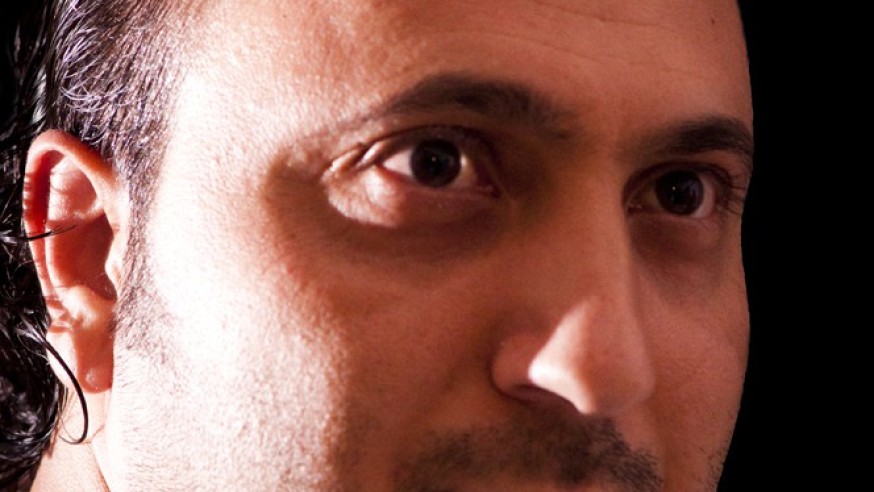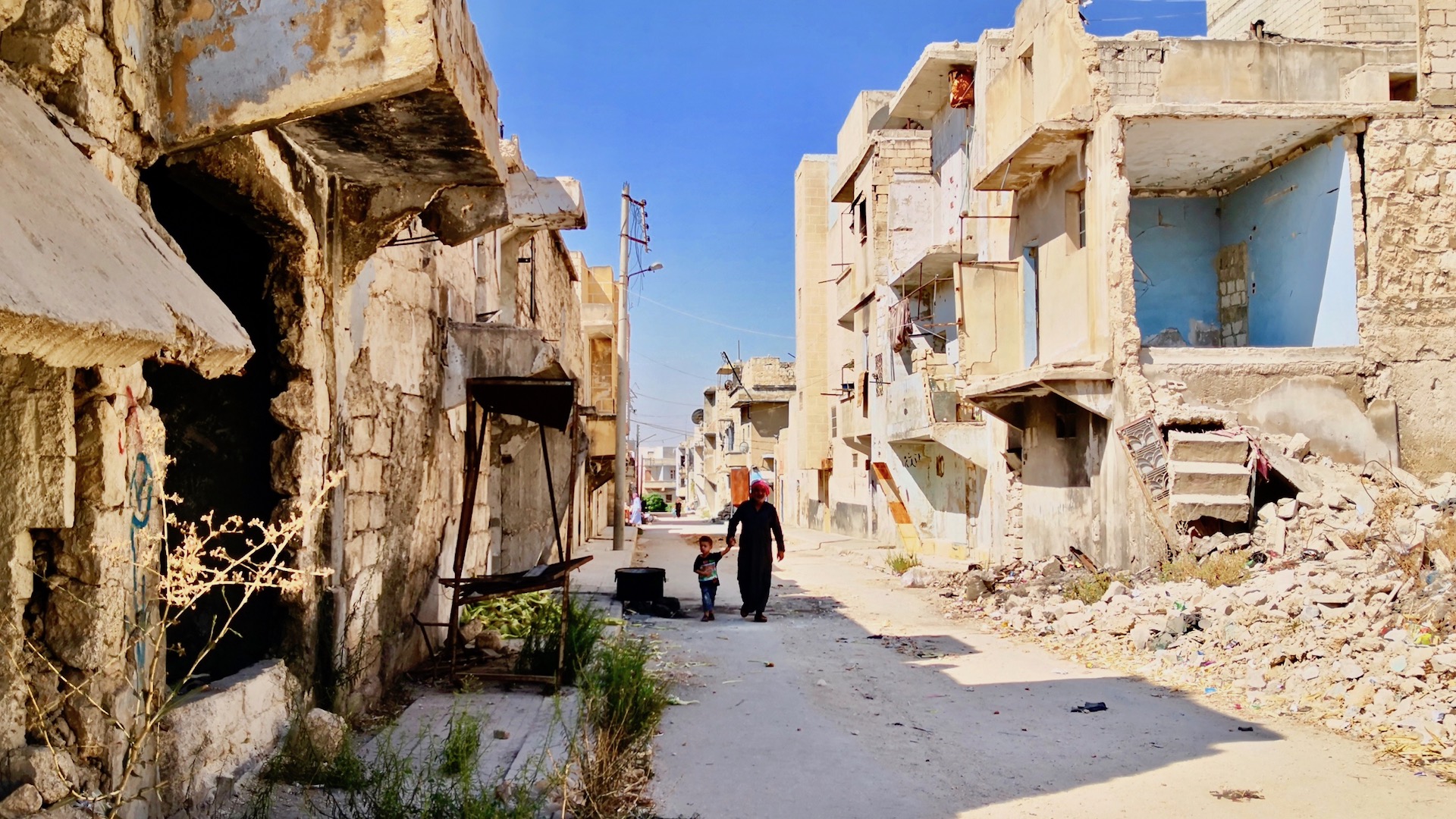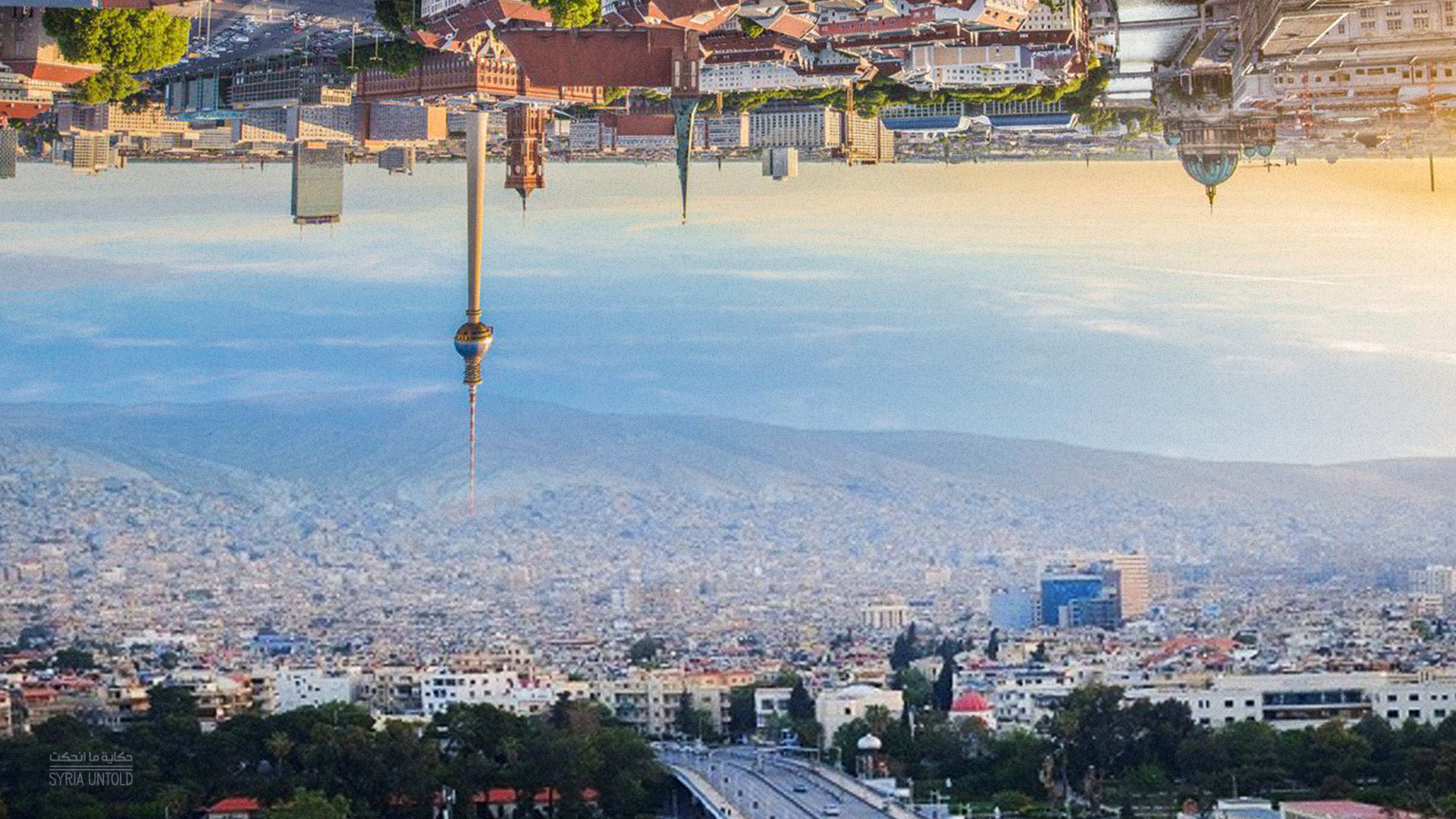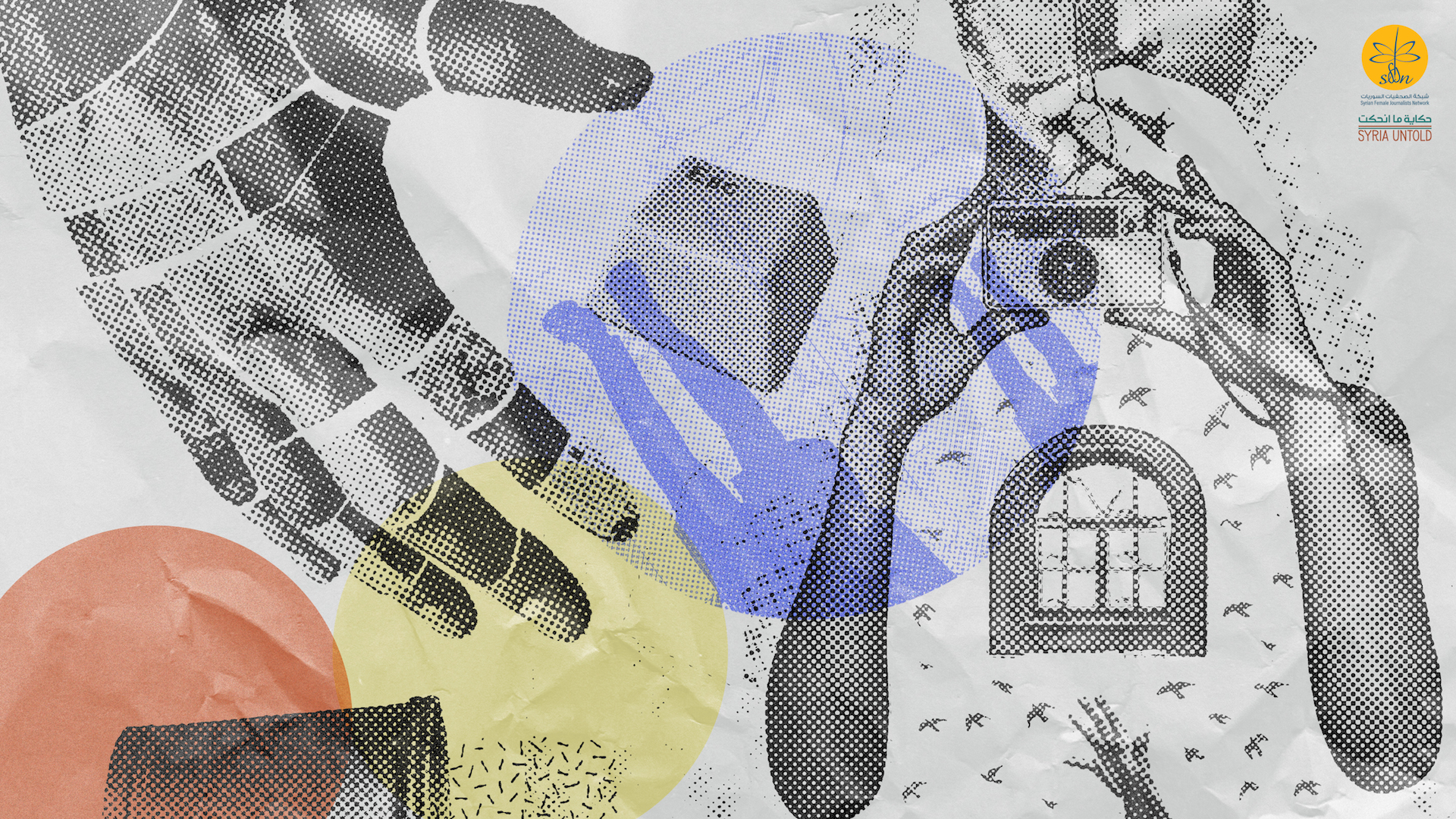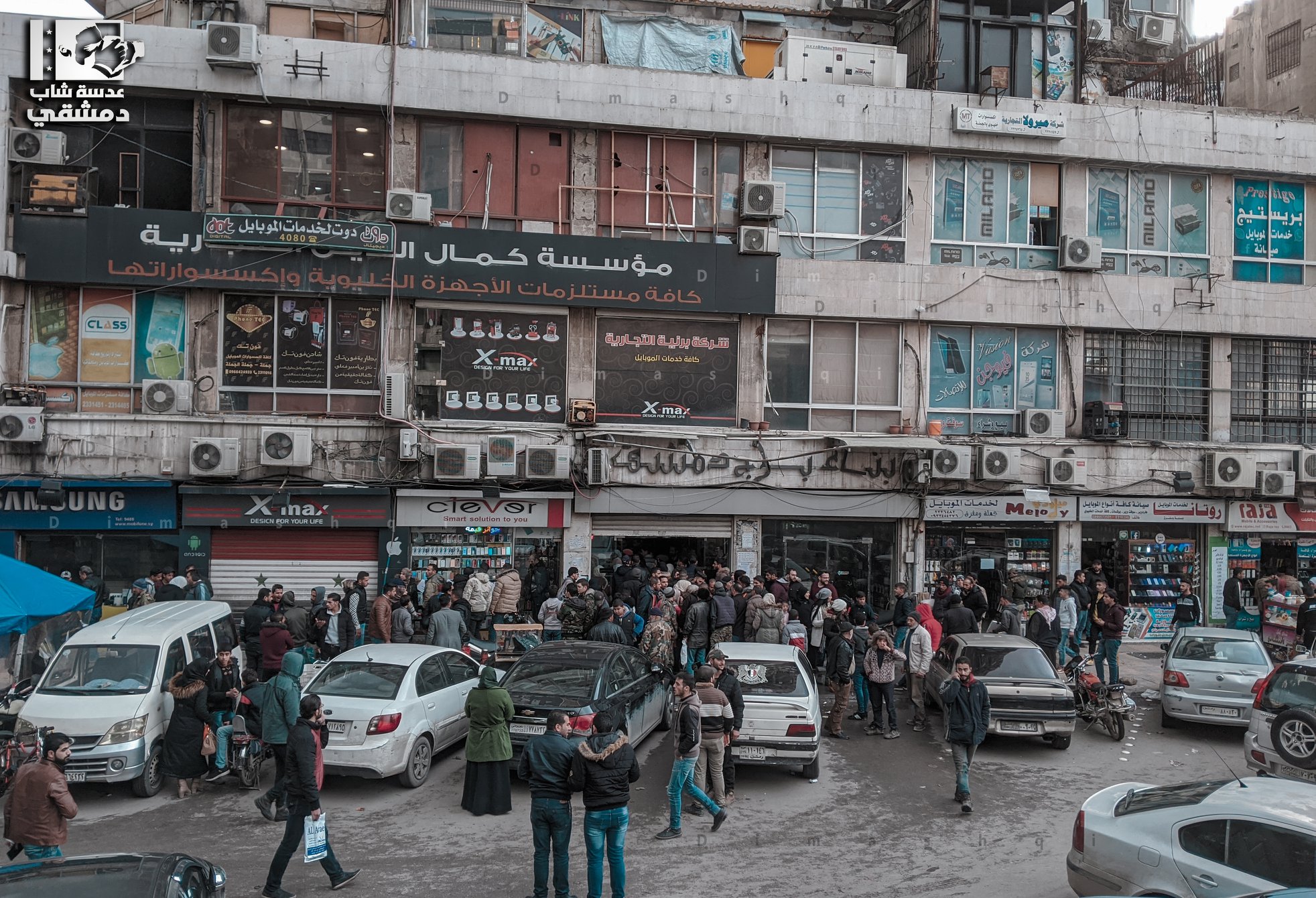Syria today evokes more than just sadness, pain and exhaustion in us, as its catastrophes push us far beyond those emotions. We stand before this cruelty and sheer horror, and we refuse to call it our Syria; our Syria for whom we still invent hopes that can not be extinguished.
Yet the pragmatic mind asks: What is hope amid starvation, coronavirus, siege, sanctions, the power of terror, of weapons and division and cheap death? What of these military occupations that govern us while diverting the world’s eyes? It’s as if we’re in hell, like the one penned by Dante and al-Maari. Didn't we once fear using this kind of vocabulary to describe our situation?
Despite the cruelty, horror and madness implied by the word, "hell" is not sufficient. It is cliché, neutral, amorphous. It cannot carry the full meaning of our affliction, or express it accurately. Syria is different: it is torn apart, its citizens scattered and its land occupied by both foreign and domestic tyrants. It is a divided country.
And worse, there are doubts over every aspect of Syria’s identity, its unity, the loyalties of its citizens, its sovereignty and even the nature of its enemies—something that, at times, can unify people around a national identity. It seems that in Syria, those people are many, and dispersed. The enemy for a Syrian Kurd may be different from that of an Arab, or someone from the coast, the north or south.
From Damascus’ al-Rawda cafe to Berlin’s Einstein cafe, a heartbeat
28 August 2020
Even within these communities, there is disagreement over enemies, over whether they are the Americans or the Russians, the Iranians or the Turks. These disagreements are not just between supporters and opponents of the regime; we find this discord among the ranks of loyalists, some of whom prefer Russia over Iran, and others the opposite. Meanwhile, members of the opposition disagree over their preferences for the US or Turkey. Ultimately, we are divided along sharp political lines, which only mirror even sharper, deeper divisions between us.
It seems we are walking against the onward march of history. We demand freedom, and we get more tyranny. We demand sovereignty, and we find ourselves under multiple occupations. We ask for an army and a homeland; we see militias and mercenaries and ever more armed factions.
And despite the damper this puts on any real change (did we used to say “change?”), our grief and mourning come from a different place entirely. They come from the collective lack of willpower across the spectrum of Syria’s loyalists and opposition members. Nobody has decision-making power, and nobody seems to contemplate how they can regain this power to start building a path for change.
This void reflects, for us, yet another truth: that all the critical statements and narratives broadcast time and again throughout these past years resulted in nothing positive for Syria. Islamists and secularists remain as opposites, far from any dialogue that could draw them closer. Syrian opposition groups and administrative bodies are splintered across numerous different loyalties, not a single one of them holding true decision-making power. Both regime and rebel fighters have become mercenaries in the true meaning of the word, pawns in the hands of this or that state. The one exception is perhaps the Syrian Democratic Forces, or SDF, which still possesses some margin of autonomy. Or perhaps the fighters in southern Syria who are trying to make noise in the face of tyranny and occupation after the failure of the reconciliation process.
It seems we are walking against the onward march of history. We demand freedom, and we get more tyranny. We demand sovereignty, and we find ourselves under multiple occupations. We ask for an army and a homeland; we see militias and mercenaries and ever more armed factions, groups that don’t stray far from terrorism. We demand a unified opposition, and yet we see no real difference between Bashar al-Assad and Putin, and those loyal to Turkey, the Gulf states, the US and others. What have we become?
I mention all this amid the re-emerging division of Syrians and some people representing the Syrian opposition, who were bidding over whether Biden or Trump would win the US presidential election, squabbling over empty talk. This, after 10 years of death and destruction and missteps in Syria. As if we were waiting for Biden to stand before us just as Obama did in 2012, and proclaim: Assad’s days are numbered. Do we build our strategy from this delusion? Is it not time for our sad, orphaned Syria to wake up?


